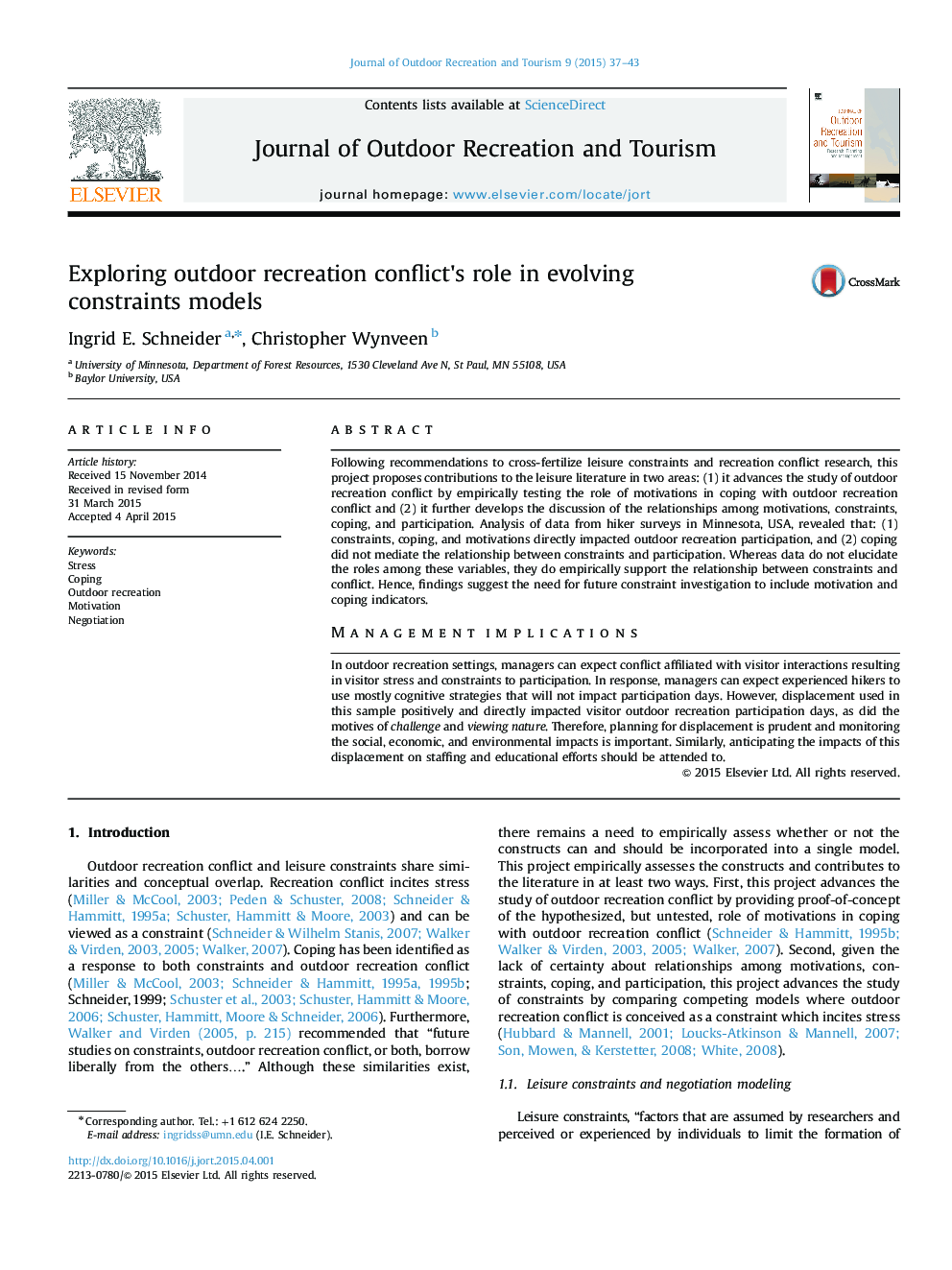| Article ID | Journal | Published Year | Pages | File Type |
|---|---|---|---|---|
| 92407 | Journal of Outdoor Recreation and Tourism | 2015 | 7 Pages |
Following recommendations to cross-fertilize leisure constraints and recreation conflict research, this project proposes contributions to the leisure literature in two areas: (1) it advances the study of outdoor recreation conflict by empirically testing the role of motivations in coping with outdoor recreation conflict and (2) it further develops the discussion of the relationships among motivations, constraints, coping, and participation. Analysis of data from hiker surveys in Minnesota, USA, revealed that: (1) constraints, coping, and motivations directly impacted outdoor recreation participation, and (2) coping did not mediate the relationship between constraints and participation. Whereas data do not elucidate the roles among these variables, they do empirically support the relationship between constraints and conflict. Hence, findings suggest the need for future constraint investigation to include motivation and coping indicators.Management implicationsIn outdoor recreation settings, managers can expect conflict affiliated with visitor interactions resulting in visitor stress and constraints to participation. In response, managers can expect experienced hikers to use mostly cognitive strategies that will not impact participation days. However, displacement used in this sample positively and directly impacted visitor outdoor recreation participation days, as did the motives of challenge and viewing nature. Therefore, planning for displacement is prudent and monitoring the social, economic, and environmental impacts is important. Similarly, anticipating the impacts of this displacement on staffing and educational efforts should be attended to.
